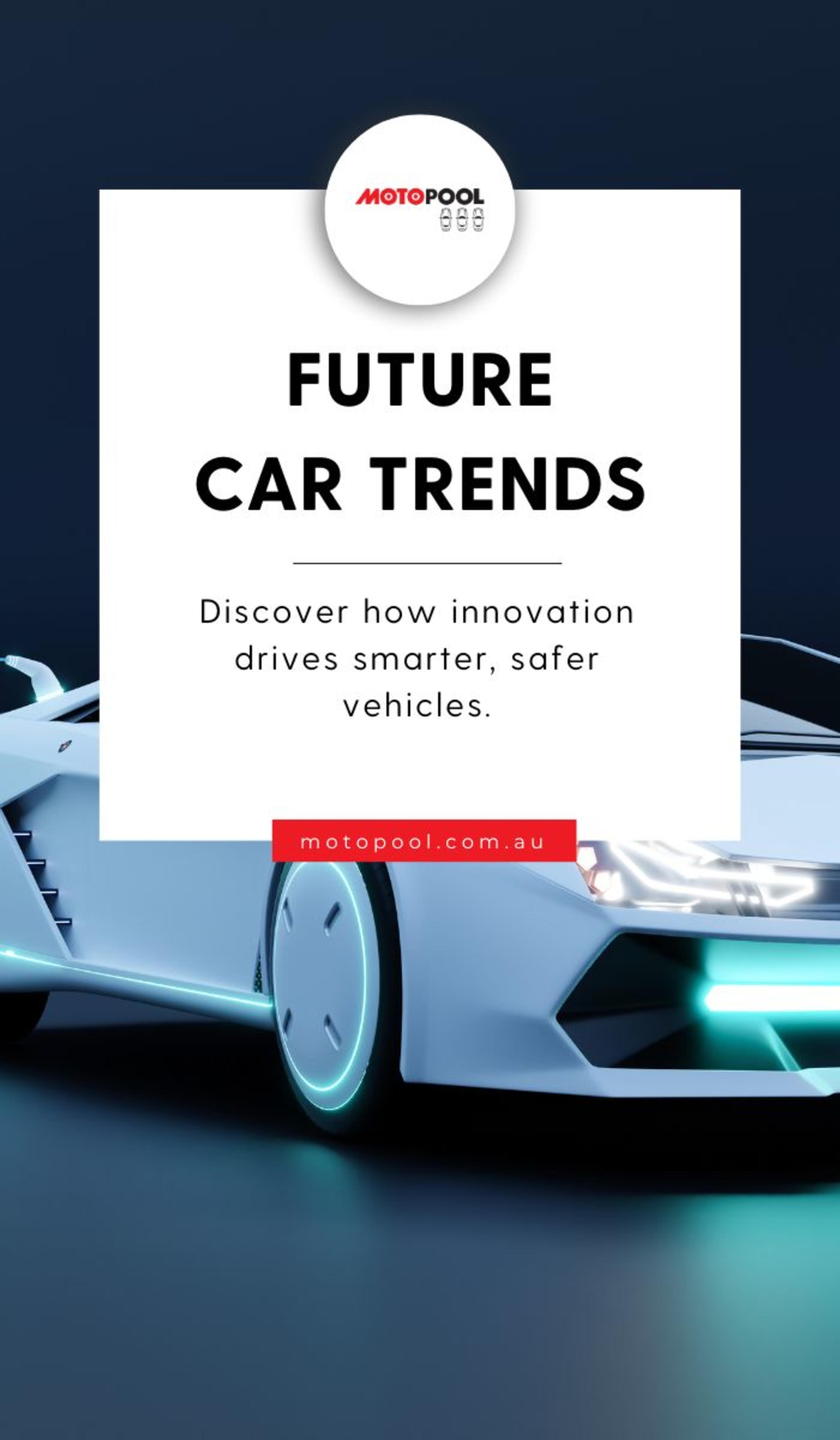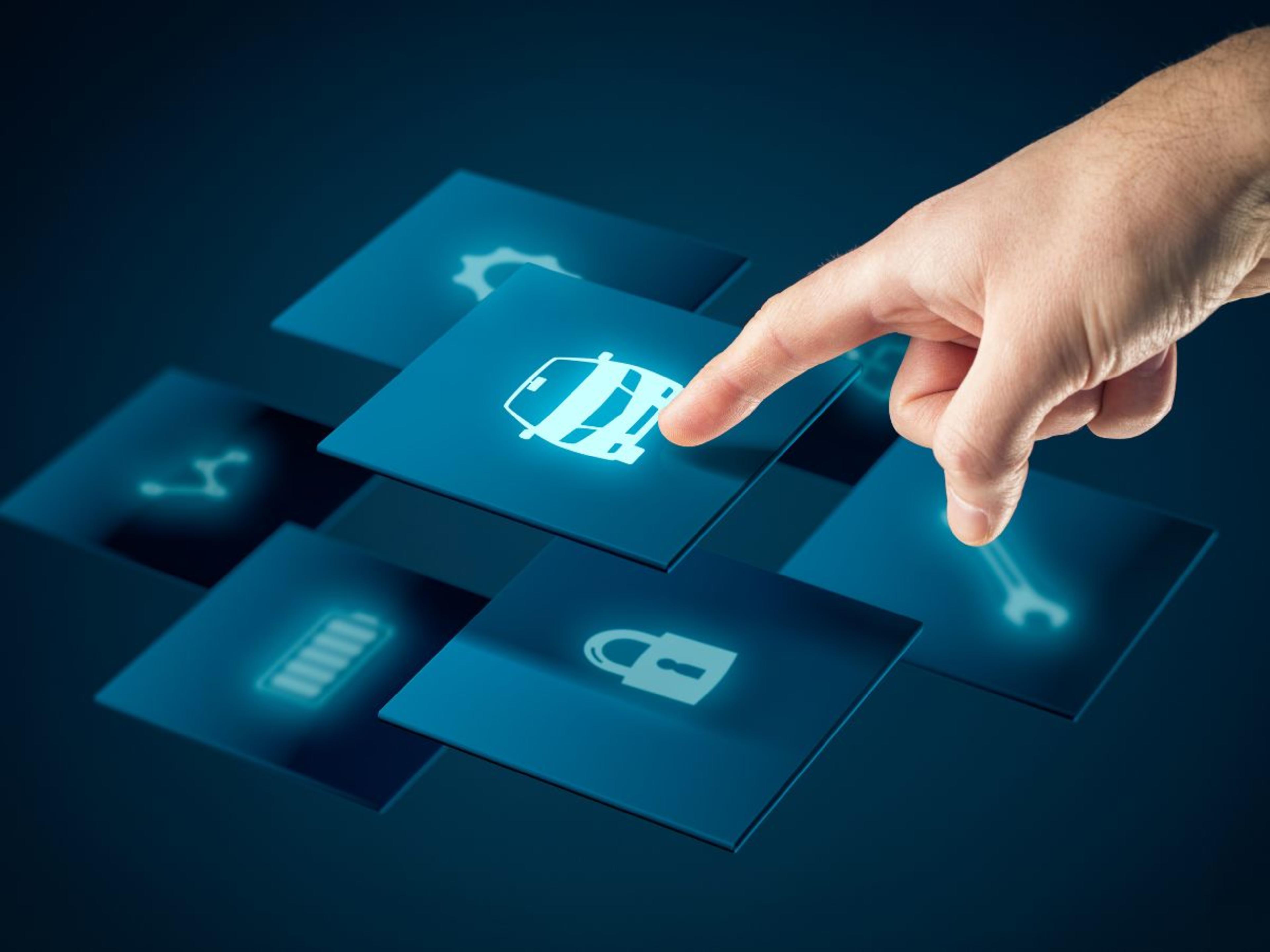The Future of Cars: Trends and Technologies Shaping the Automotive Industry

The automotive industry is undergoing a profound transformation, driven not only by technological advancements but also by the evolving preferences of consumers. A growing focus on sustainability is also shaping the future of cars. From software-defined vehicles to personalised transportation services, the future of cars is a product of innovation and collaboration, reflecting the changing needs and desires of car users. Motopool delves into the future of cars, their proposed tech, and the look and feel of the future vehicles.
It's no surprise to any car user and enthusiast that the landscape of our everyday vehicles is changing exponentially. If we look at the incredible advancements over the past decade, it’s no surprise to expect to see more of this trend occur over the next ten years. Similar to our phones, our cars are now becoming a haven for technology, not only allowing a safer, more comfortable drive but also offering convenience and comfort never witnessed before in the automotive industry.
Software-Defined Vehicles (SDVs)
Cars are evolving into software-defined vehicles, where software controls their features and functions. This shift is revolutionising the driving experience, with a focus on connectivity, user experience, and personalised services. SDVs enable seamless integration with the Internet of Things (IoT) and facilitate data-driven mobility solutions.
Software-Defined Vehicles (SDVs) refer to the new standard in automotive design where the functionality and features of a vehicle are primarily controlled and defined by software rather than by traditional mechanical components alone. In an SDV, software plays a central role in managing various aspects of the vehicle's operation, including propulsion systems, safety features, entertainment systems, and connectivity to external networks.
SDVs are characterised by a centralised control system that governs the vehicle's functions. This control system is typically powered by sophisticated software algorithms that coordinate and manage inputs from various sensors, actuators, and onboard systems. SDVs are also highly connected vehicles that utilise internet connectivity to communicate with external networks, such as cloud-based services, navigation systems, and other cars on the road. This connectivity enables software updates, real-time traffic information, and remote diagnostics. Experts agree that this is a transformative development in cars and will drastically change the landscape of the automotive industry.

Say Goodbye to Upgrading Cars for Advance Features
One of the critical advantages of SDVs is their ability to adapt and evolve through software updates and upgrades. This allows manufacturers to introduce new features, enhance performance, and address issues without needing physical modifications to the vehicle. This is a massive game changer to the industry, particularly considering how quickly this technology is evolving in our vehicles. SDVs are also masters at collating data through onboard sensors and connected systems. This data can be analysed to provide valuable insights into vehicle performance, driver behaviour, and road conditions, enabling manufacturers to optimise their products and services.
Plus, it’s all about the user experience, with SDV offering advanced features such as voice-controlled assistants, augmented reality displays, and personalised settings. These features are not just designed to make driving safer, more convenient, and more enjoyable for drivers and passengers, but also to provide a sense of reassurance about the future of driving.
Connected Services & Internet of Things (IoT) Integration
Integrating cars into the IoT ecosystem enables real-time data exchange and connectivity. This integration drives advancements in predictive maintenance, remote diagnostics, and personalised user experiences. Cars are becoming more intelligent, capable of making data-driven decisions and enhancing safety on the roads.
Autonomous Driving & AI
Advances in artificial intelligence (AI) are driving significant progress in autonomous driving technology. Self-driving cars are not just a futuristic concept but a tangible promise of safer roads, reduced traffic congestion, and improved mobility. AI-powered features are not just about convenience but also about enhancing vehicle performance, optimising energy usage, and enabling adaptive driving experiences, illustrating the transformative potential of AI in the automotive industry.

Electrification & Sustainability
The future of cars is electric, focusing on sustainable energy sources and alternative fuels. Electric vehicles (EVs) and hydrogen fuel cells are key technologies driving the transition to sustainable mobility. Car manufacturers invest in eco-friendly manufacturing processes and materials to reduce environmental impact—a win-win for the consumer and our planet and a hopeful sign for the future of transportation.
Personalised Transportation Services
Consumers are shifting from traditional car ownership to subscription-based models and on-demand mobility services. Car subscriptions, vehicle-sharing, and peer-to-peer rental platforms offer flexibility and convenience to users. Personalised features and upgrades cater to individual preferences and lifestyles. These types of services are only set to increase year-on-year, with many younger generations preferring flexibility and convenience rather than the stringent and restrictive traditional purchase model.
Urban Mobility & Smart Cities
Cars play a pivotal role in developing smart cities and urban mobility solutions. Integrating public transportation, innovative infrastructure, and traffic management systems optimises transportation networks. Collaborative efforts between automotive manufacturers, tech companies, and government agencies drive innovation in urban mobility.
The future of cars is dynamic and multifaceted, with technology driving innovation across every aspect of the automotive industry. The future promises safer, smarter, and more sustainable transportation, from software-defined vehicles to sustainable mobility solutions. Collaboration and partnerships will be vital to realising this vision and shaping the future of mobility.
The Future of Car Design
As car manufacturers strive to improve fuel efficiency and performance, we expect to see more sleek and aerodynamic designs. Smooth curves and streamlined profiles will become increasingly common, reducing drag and enhancing overall efficiency.

Materials
With advancements in material and texture science, future cars may feature innovative materials such as carbon fibre, aluminium alloys, and composites. These materials offer reduced weight, improved strength, and enhanced safety, allowing for more efficient and sustainable vehicle designs.
Interior Design
It is also hinted that interior design will focus on creating comfortable and connected passenger spaces. Expect to see ergonomic seating arrangements, customisable lighting, and intuitive infotainment systems. Mazda has recyclable interiors with re-generated cork & plastics. Integrating augmented reality (AR) and virtual reality (VR) technologies may also redefine the in-car entertainment experience.
Future car interiors may also adopt a more flexible and modular approach to accommodate changing needs and preferences. Adjustable seating configurations, removable storage compartments, and customisable interior layouts will allow for greater versatility and personalisation.
Sustainable Efforts
Sustainability will be a crucial consideration in future car design, focusing on reducing environmental impact throughout the vehicle's lifecycle. This may involve using recycled materials, eco-friendly manufacturing processes, and integrating renewable energy sources such as solar panels.
Lighting Design
Let’s not forget the lighting! Lighting design will play an increasingly important role in defining cars' visual identity. Expect to see advanced LED and OLED lighting systems that enhance visibility and safety and contribute to the overall aesthetics of the vehicle. Dynamic lighting effects and customisable light signatures may become standard features.
Sensors and Camera
As autonomous driving technology evolves, car design must adapt to accommodate these new features. Future cars may feature sleek sensor arrays, LiDAR systems (Light Detection and Ranging – sometimes called active laser scanning), and integrated cameras that seamlessly blend into the vehicle's exterior design while providing essential data for autonomous operation.
Innovative Personalisation
As you can see, the future car will be highly customisable and personal. The exterior may be no different, with car buyers having the option to personalise their vehicle's exterior design through paint colours, finishes, and accents. Digital design tools and 3D printing technologies may enable greater customisation and creativity, allowing customers to create unique and expressive designs.
Sci-Fi or Real Life?
Our cars are quickly becoming as tech-savvy as our mobile phones. It’s not a massive leap to consider that one day, your car could possibly send you a text message reminding you that you are low on fuel and need to leave earlier to compensate for the travel time to work. It may also automatically start, defog glass, and even heat your seats on a cold wintery morning.
The future could witness a completely customised experience, with your vehicle becoming an integrated part of the technology roadmap of your life—booking services around your calendar and much more.
Key Takeaways
Transformation of the Automotive Industry - The automotive industry is undergoing a significant transformation driven by technological advancements, evolving consumer preferences, and a focus on sustainability.
Software-Defined Vehicles (SDVs) - SDVs represent a new standard in automotive design, where software controls the vehicle's features and functions. They offer enhanced connectivity, personalised services, and seamless integration with the Internet of Things (IoT).
Adaptability & Flexibility - SDVs can adapt and evolve through software updates and upgrades, allowing manufacturers to introduce new features and enhance performance without physical modifications.
User Experience - SDVs prioritise user experience with advanced features such as voice-controlled assistants, augmented reality displays, and personalised settings, enhancing safety, convenience, and comfort.
Connectivity and IoT Integration - Integration into the IoT ecosystem enables real-time data exchange, driving advancements in predictive maintenance, remote diagnostics, and personalised user experiences.
Autonomous Driving and AI - Advances in AI are driving progress in autonomous driving technology, promising safer roads, reduced congestion, and improved mobility. AI-powered features enhance vehicle performance and optimise energy usage.
Sustainability and Electrification - The future of cars is electric, focusing on sustainable energy sources and alternative fuels. Manufacturers are investing in eco-friendly products and materials and processes to reduce environmental impact.
Personalised Transportation Services—Consumers are shifting towards subscription-based models and on-demand mobility services, which offer flexibility and convenience. Personalised features cater to individual preferences and lifestyles.
Urban Mobility & Smart Cities - Cars are crucial in developing smart cities and urban mobility solutions, optimising transportation networks through collaboration between manufacturers, tech companies, and government agencies.
Future Car Design Trends - Future cars will feature sleek and aerodynamic designs, advanced materials, customisable interiors, and innovative lighting solutions. Integrating autonomous features and personalised exterior designs will redefine vehicles' visual identity.
Integration of Technology - Cars are becoming increasingly tech-savvy, integrating seamlessly into consumers' lives with features like automated reminders, intelligent scheduling, and personalised services, blurring the lines between science fiction and reality.
